I feel a bit like the golden child. But you only know that when you look back, and see the people who touched you, and how friends, camp counselors, people who denied you humanity that you overcame. People who said you couldn't, and you shouldn't, and you won't, and you will never — and you did.
Whoopi Goldberg was born Caryn Johnson in New York City. Her mother, a nurse and teacher, raised her daughter and a son on her own after Whoopi’s preacher father left the family. The future star spent the first years of her life in a public housing project in Manhattan. Drawn to the theater from earliest childhood, she made her performing debut at age eight with the Helena Rubinstein Children’s Theatre at the Hudson Guild. After dropping out of high school at 14, she lied about her age to find work as a summer camp counselor, and to sing in the choruses of the Broadway shows Hair, Jesus Christ Superstar and Pippin. After surviving an early experience with drug addiction, she married at age 18, and gave birth to a daughter, Alexandrea.
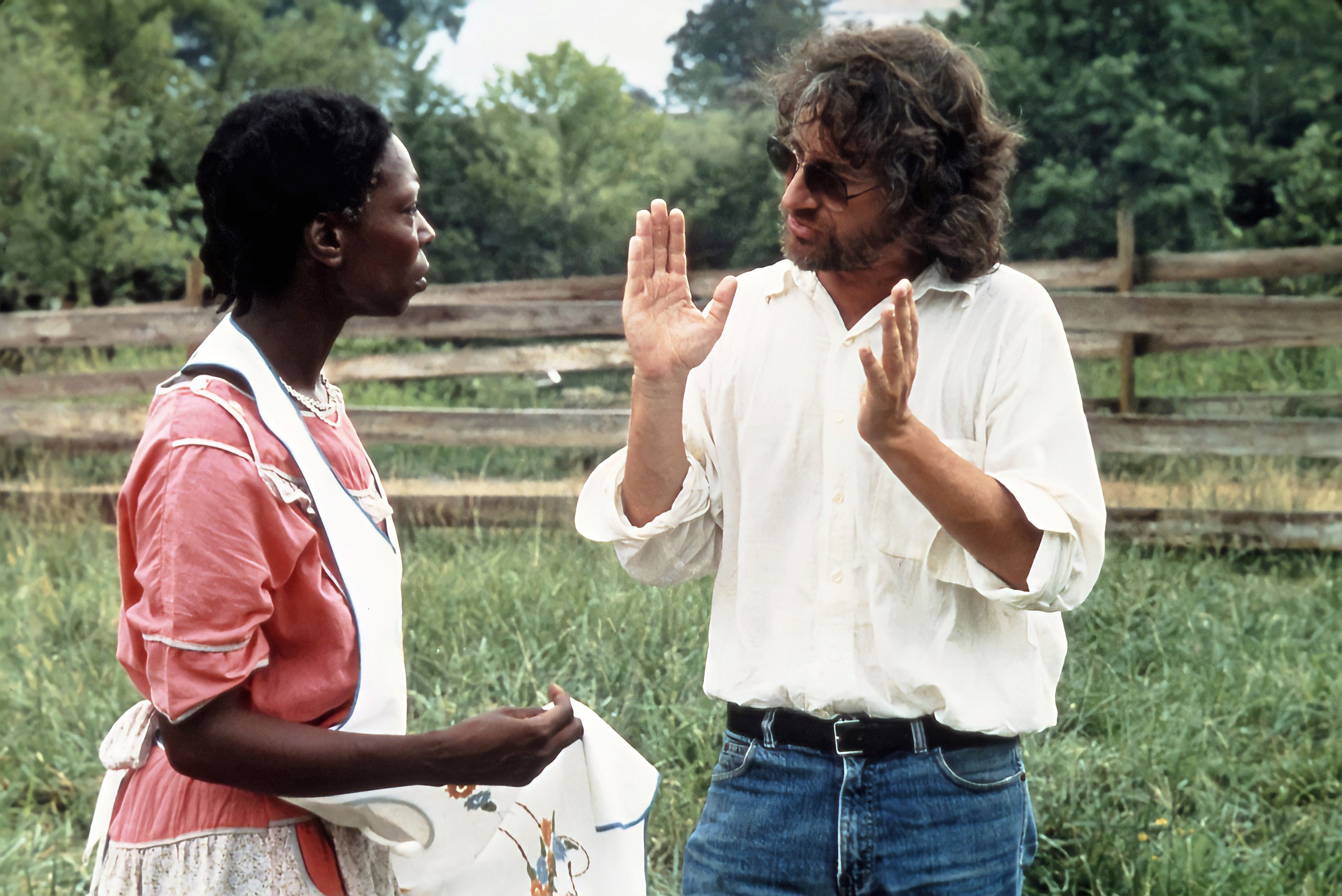
After breaking with her husband, she and Alexandrea moved to California in 1974. The following year she helped found the San Diego Repertory Theatre and joined the improvisational theater group Spontaneous Combustion. It was at this time that Caryn Johnson adopted her distinctive stage name — Whoopi Goldberg — and began to develop the character monologues that were to make her famous. After moving to the San Francisco Bay Area, she joined another improvisational group, the Blake Street Hawkeyes, and acquired a large local following for her work as a stand-up comedian. Soon she was touring the U.S. and Europe with her one-woman production, The Spook Show.
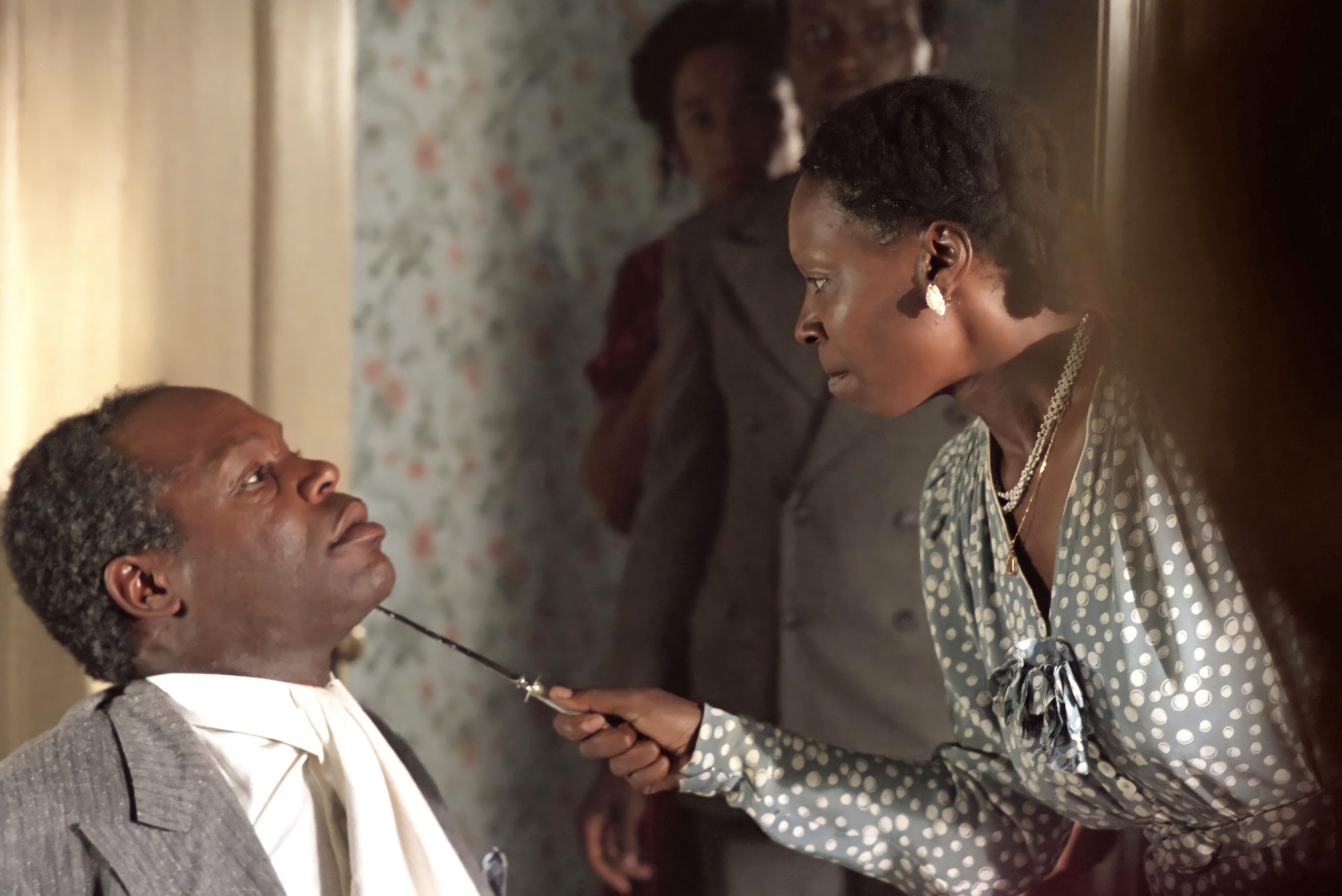
In 1983, Whoopi Goldberg brought The Spook Show to New York’s Dance Theater Workshop, where it attracted immediate critical attention. The legendary director Mike Nichols saw her perform, and the following year presented her on Broadway in a revised version of her solo act, titled simply Whoopi Goldberg. The one-woman show played to sold-out audiences into 1985, and brought her to the attention of director Steven Spielberg. Spielberg cast her in the leading role in his film of Alice Walker’s acclaimed novel The Color Purple. Making her film debut in this coveted role instantly established Goldberg as one of Hollywood’s leading dramatic actresses. Her powerful performance brought her a Golden Globe and her first Oscar nomination.
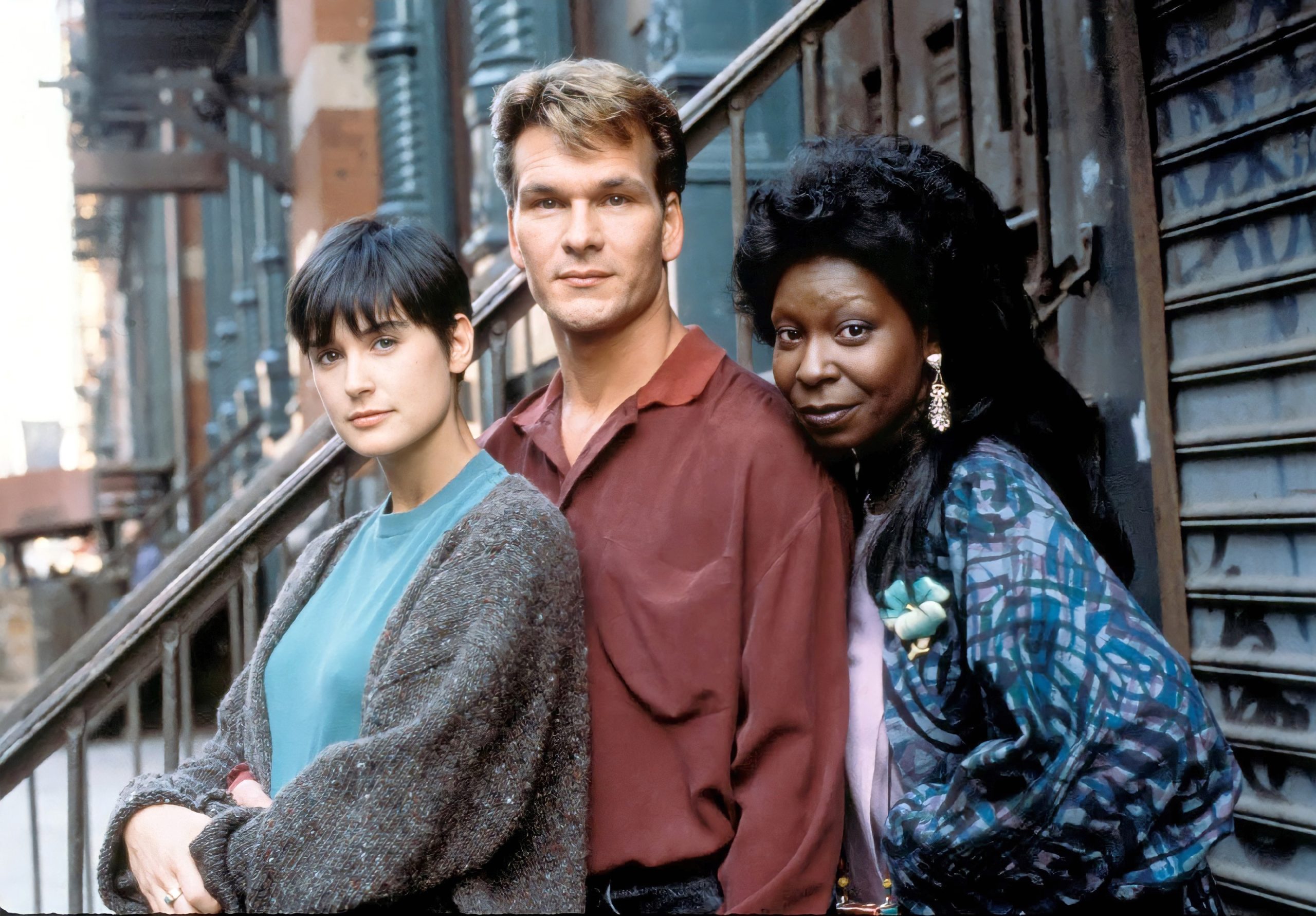
Goldberg followed her triumph in The Color Purple with a successful comic vehicle, Jumping Jack Flash, but her next few comedies proved to be box office disappointments. Dramatic performances in the films Clara’s Heart and The Long Walk Home won her critical praise but also failed to find the large audiences the studios were banking on. At the close of the 1980s, Whoopi Goldberg was still very much in demand as a live performer, and with her friends Robin Williams and Billy Crystal, she headlined the popular Comic Relief television specials to support charities aiding the homeless.
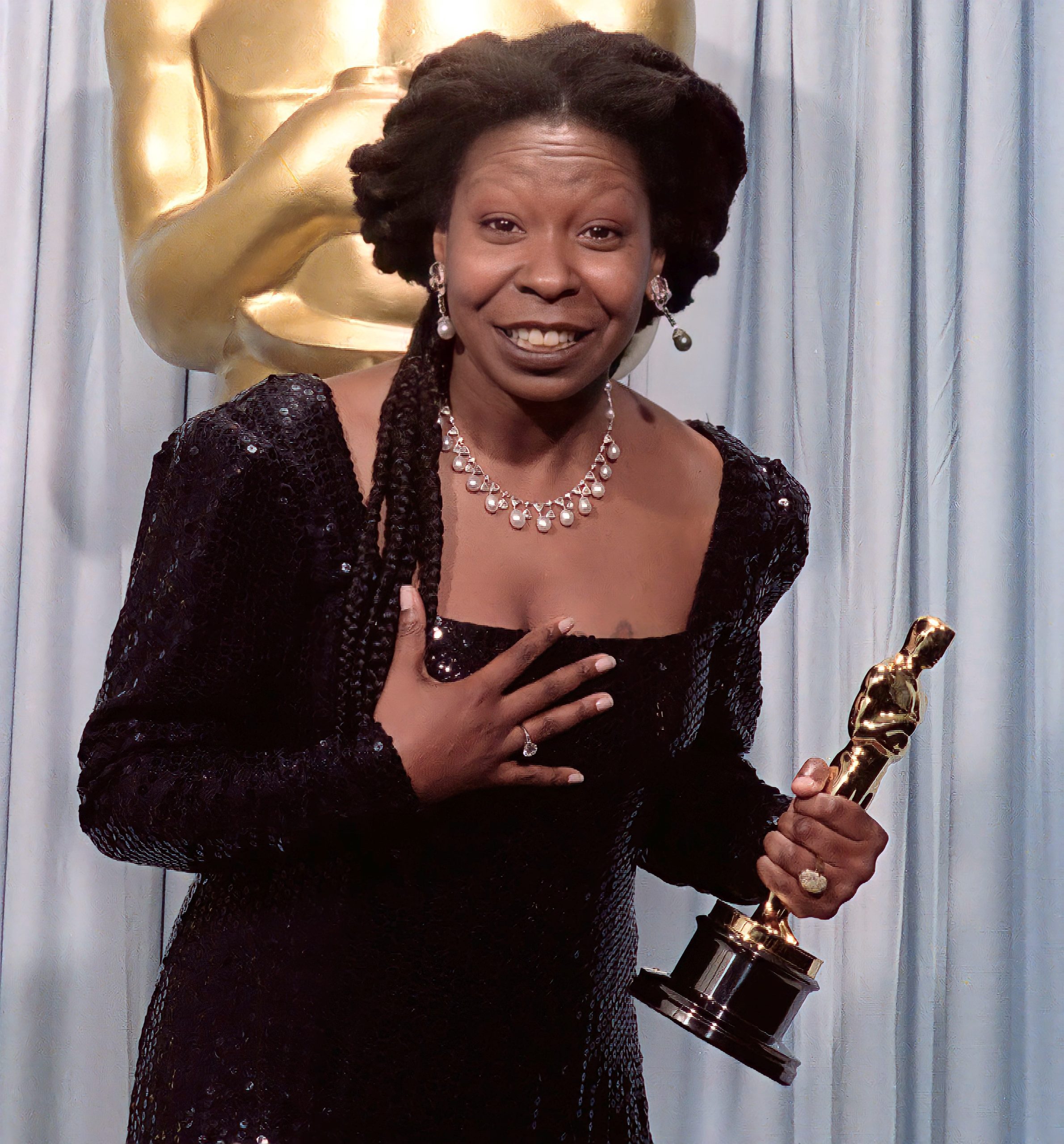
In 1990, Goldberg began two seasons starring in the television sitcom Baghdad Café. In the same year, her faltering film career revived suddenly with her supporting role in the surprise hit Ghost. In the opinion of many critics, it was her performance as a phony — if well-intentioned — psychic that made the film a stand-out. Once again, the film industry was excited about Whoopi Goldberg, and she took home the year’s Oscar for Best Supporting Actress. She followed this victory with the box-office smash Sister Act, which cast her as a hard-boiled nightclub singer hiding out in a convent. The worldwide success of this comedy catapulted Whoopi Goldberg into the ranks of Hollywood’s top stars and led inevitably to a sequel. At the time of Sister Act 2: Back in the Habit, she was the highest paid actress in history.
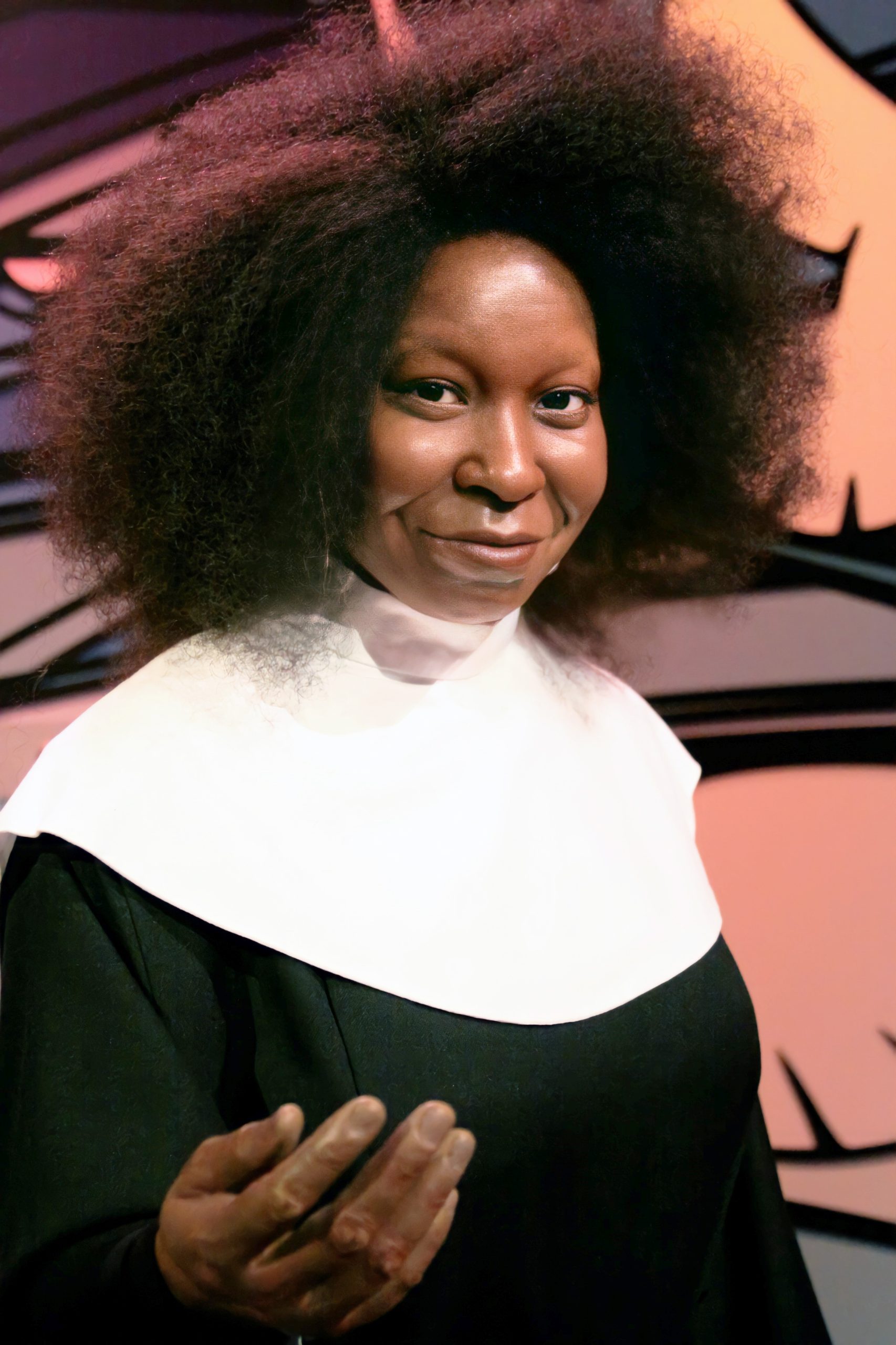
Goldberg earned continued respect from critics as well, with her appearance as a police detective in Robert Altman’s The Player. She also enjoyed success on television, with a recurring guest role, “Guinan,” on Star Trek: The Next Generation, a character she reprised in two Star Trek movies. Her other film successes in the 1990s included Made In America; Corinna, Corinna; Boys on the Side; and a voiceover role in the animated classic The Lion King.
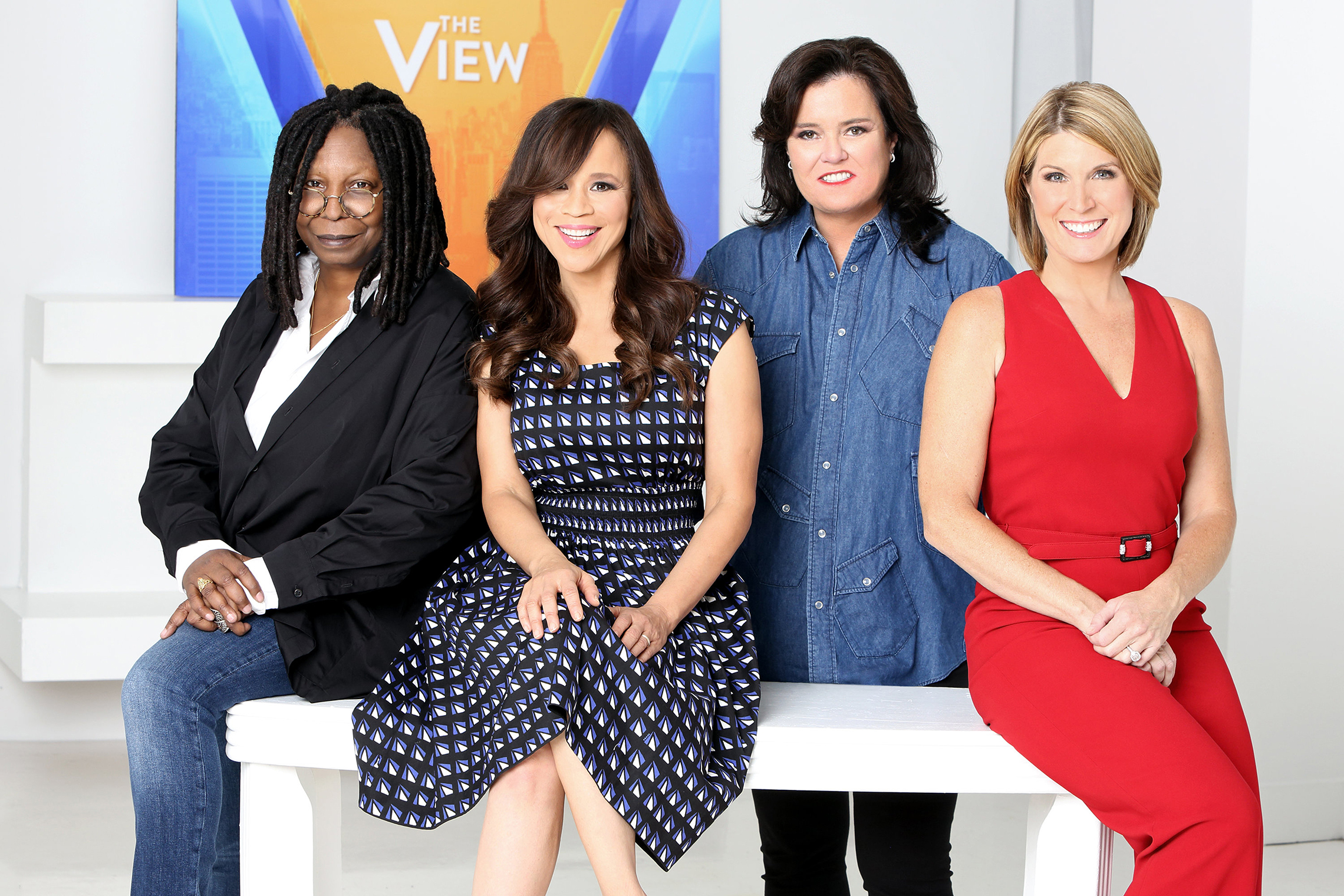
A late night talk program, The Whoopi Goldberg Show, proved the comedian and actress to be a serious and thoughtful observer of the political scene, but was cancelled after a single season. Goldberg won rave reviews hosting the annual Oscar telecast in 1994 and hosted the program again in 1996, 1999 and 2002. The following year, she starred in the TV sitcom Whoopi for a single season. She has also produced television series such as Strong Medicine on the Lifetime channel and Whoopi’s Littleburg on Nickelodeon.
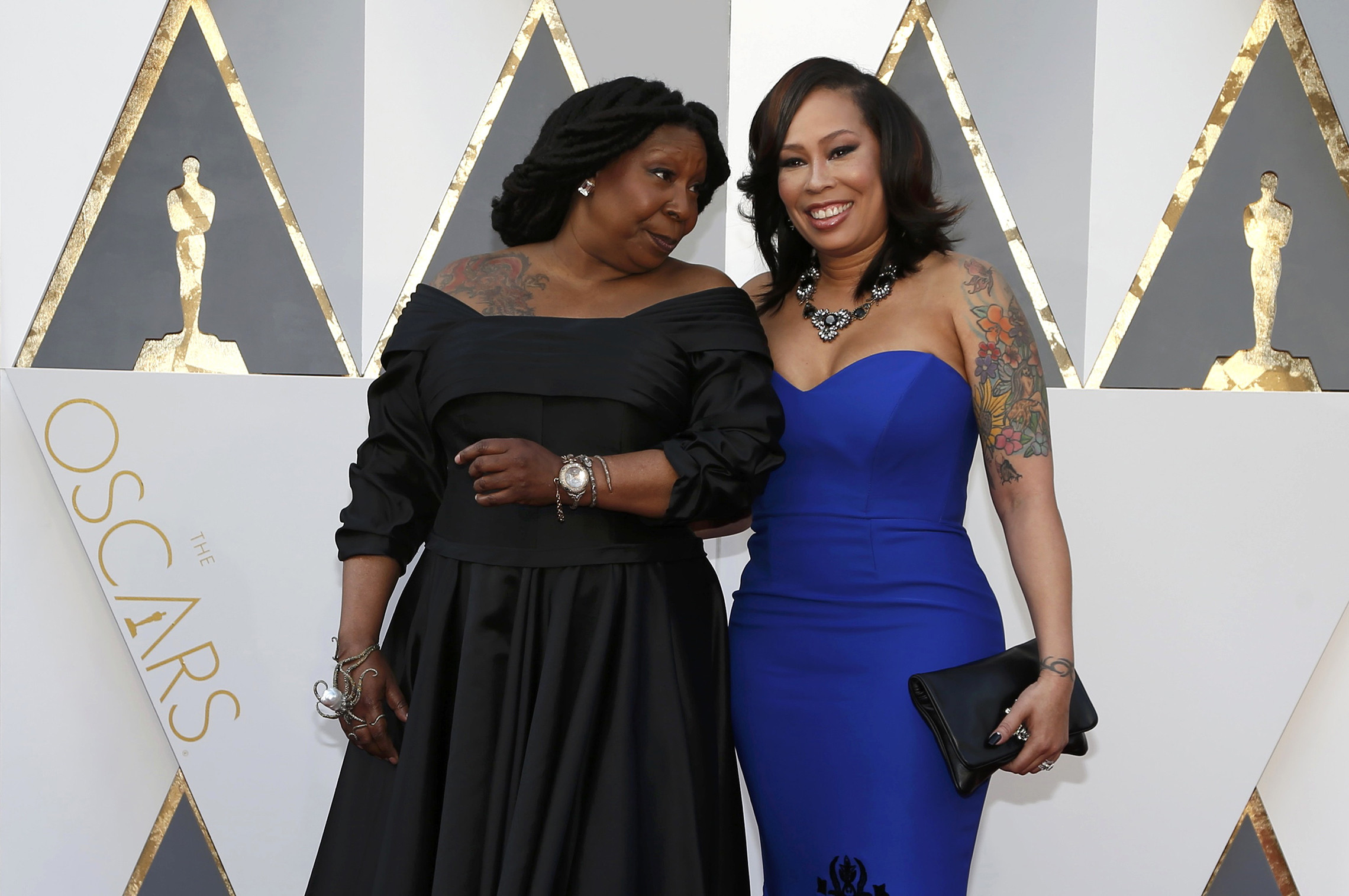
On the 20th anniversary of her Broadway success, Whoopi Goldberg revived her one-woman show for another successful run at New York’s Lyceum Theatre. Over the course of her career, she has won every major honor awarded by the entertainment industry: the Oscar, Emmy, Grammy and Tony Awards. She has also received the Mark Twain Award for American Humor, presented in a 2001 ceremony at the Kennedy Center in Washington.
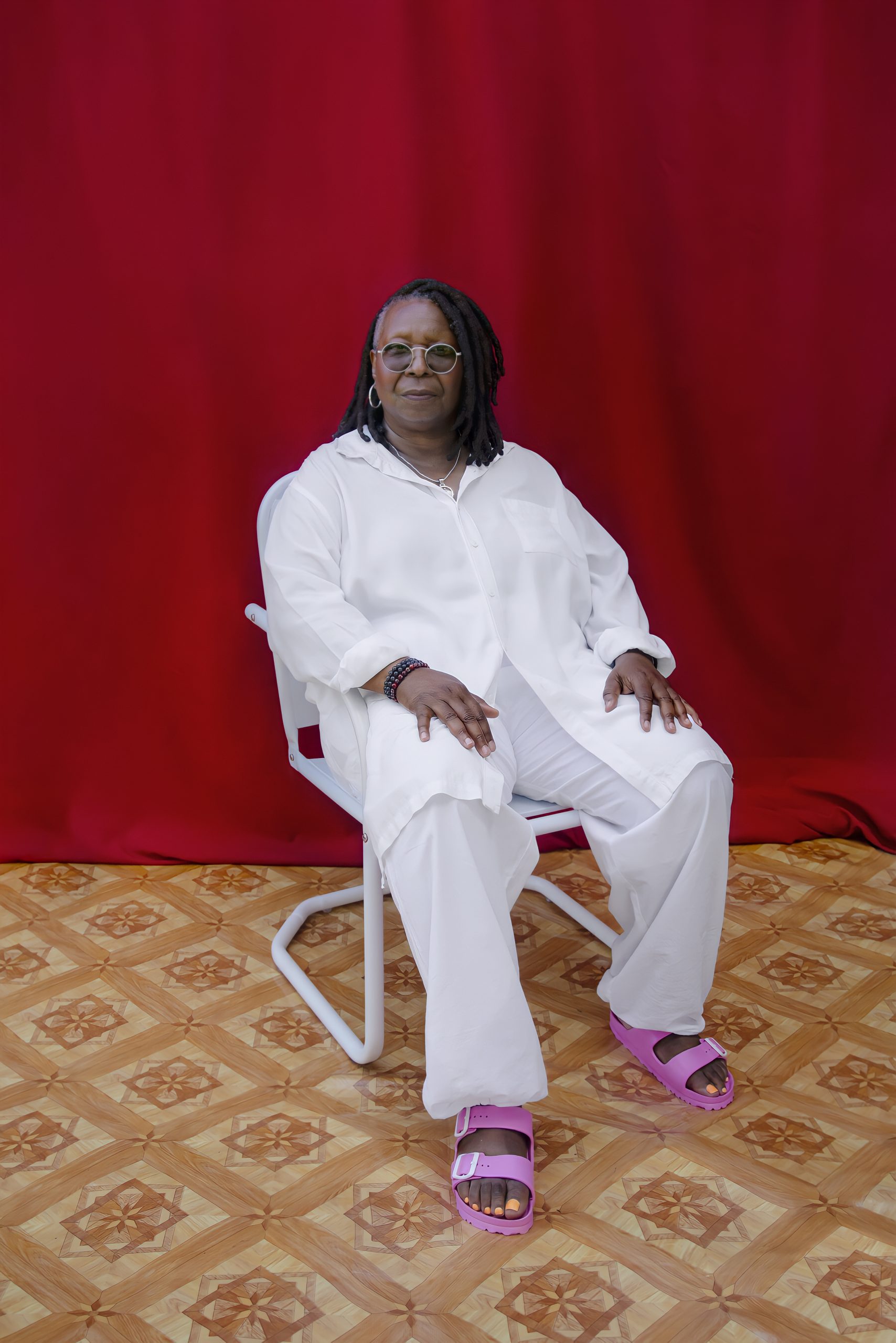
Whoopi Goldberg has long been one of the most recognizable and best-loved figures in American popular culture. Since the summer of 2007, she has been a daily presence in American homes, as co-host of ABC’s morning talk show The View. She has continued an active movie career, voicing the character of Stretchy in Toy Story 3, and appearing in the live-action film Madea Goes to Jail and 2010’s For Colored Girls, adapted from the celebrated play by Ntozake Shange.
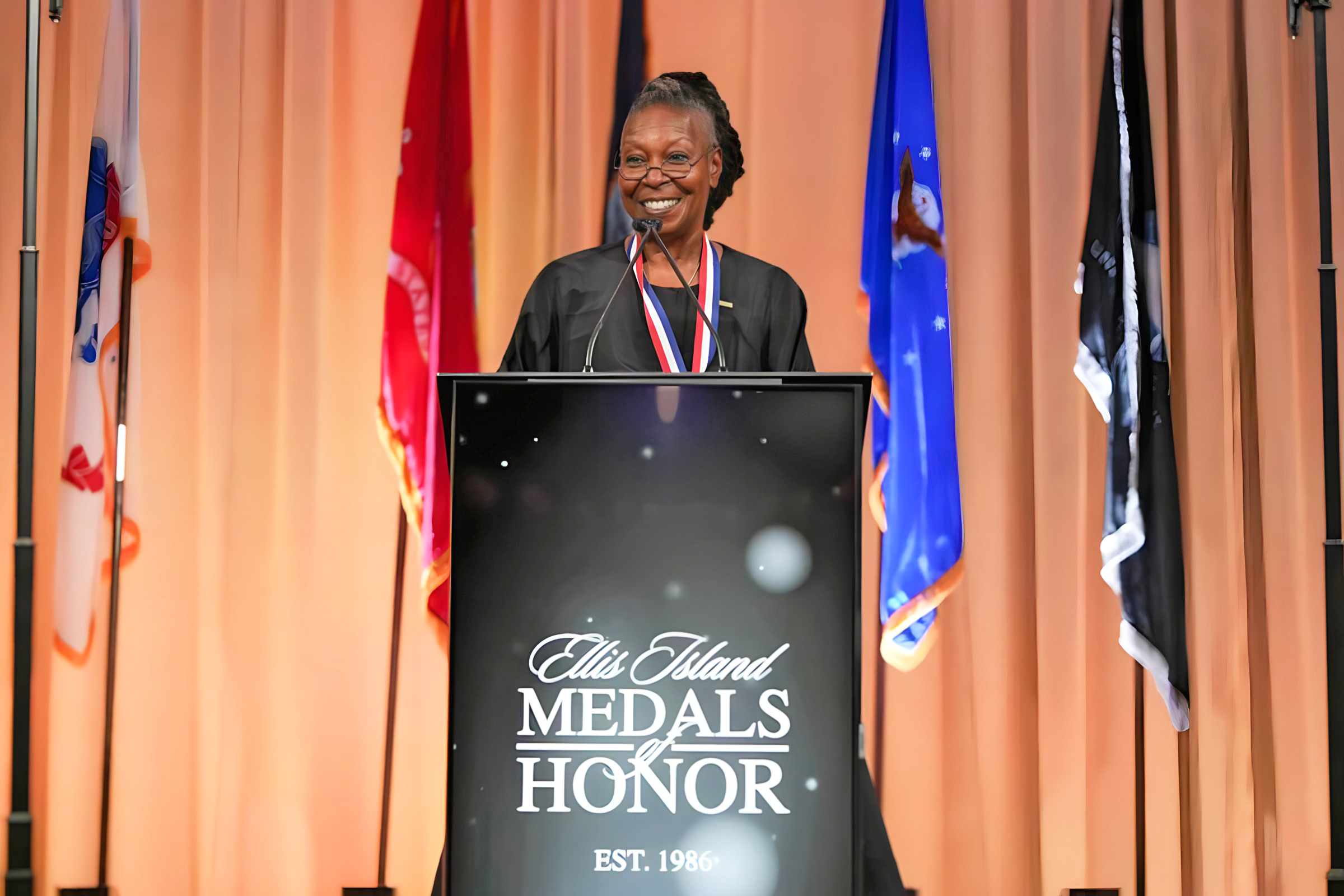
She has written a number of books, including a collection of humorous essays, Book, and the children’s books Alice and Whoopi’s Big Book of Manners, as well as the Sugar Plum Ballerinas series. In 2010, she published a book of humorous observations on contemporary manners, Is It Just Me?: Or Is It Nuts Out There?

Today, Whoopi Goldberg is one of America’s best known and most cherished entertainers. Her films The Color Purple, Ghost and Sister Act have won her an international following. Her appearances as host of the annual Oscar broadcast and as a regular on such television programs as Star Trek: The Next Generation and The Hollywood Squares have brought her into the homes of millions of Americans.
Over the course of a turbulent early life, she survived poverty, drug addiction, single motherhood and a stint on welfare in the 1970s to become the world’s most highly paid actress in the early 1990s. She has also become a highly visible spokesperson for humanitarian causes, campaigning for the rights of children and the homeless, and supporting the struggles against AIDS and substance abuse.
Over the course of her career, Whoopi Goldberg has achieved success as a comedian, dramatic actress, writer and producer, and has won the top honors in her profession, including an Oscar and the Mark Twain Award for American Humor. Millions of Americans watch her every day as co-host of the daily television discussion program The View.

When you were growing up, was there a particular experience that meant a lot to you?
Whoopi Goldberg: Yeah. When John Kennedy was running for president he came to my neighborhood. It was the hottest day in a century. It was like 9,000 degrees. People came from all over Manhattan to my neighborhood to see this guy who talked about my country, and my part in it. This was the coolest thing.
What did seeing JFK tell you?
This guy who was going to be the president was coming to my neighborhood to tell me that he was thinking of me. I mean, because I took it very personally. I thought it was very, very cool. I’m a big believer in whistle stops, you know. I believe it’s good for the people you’re supposed to represent to see you, to feel your essence. So that you as a politician know that when you’re setting legislation, you’re setting it for real people. People who will be affected by what you decide.
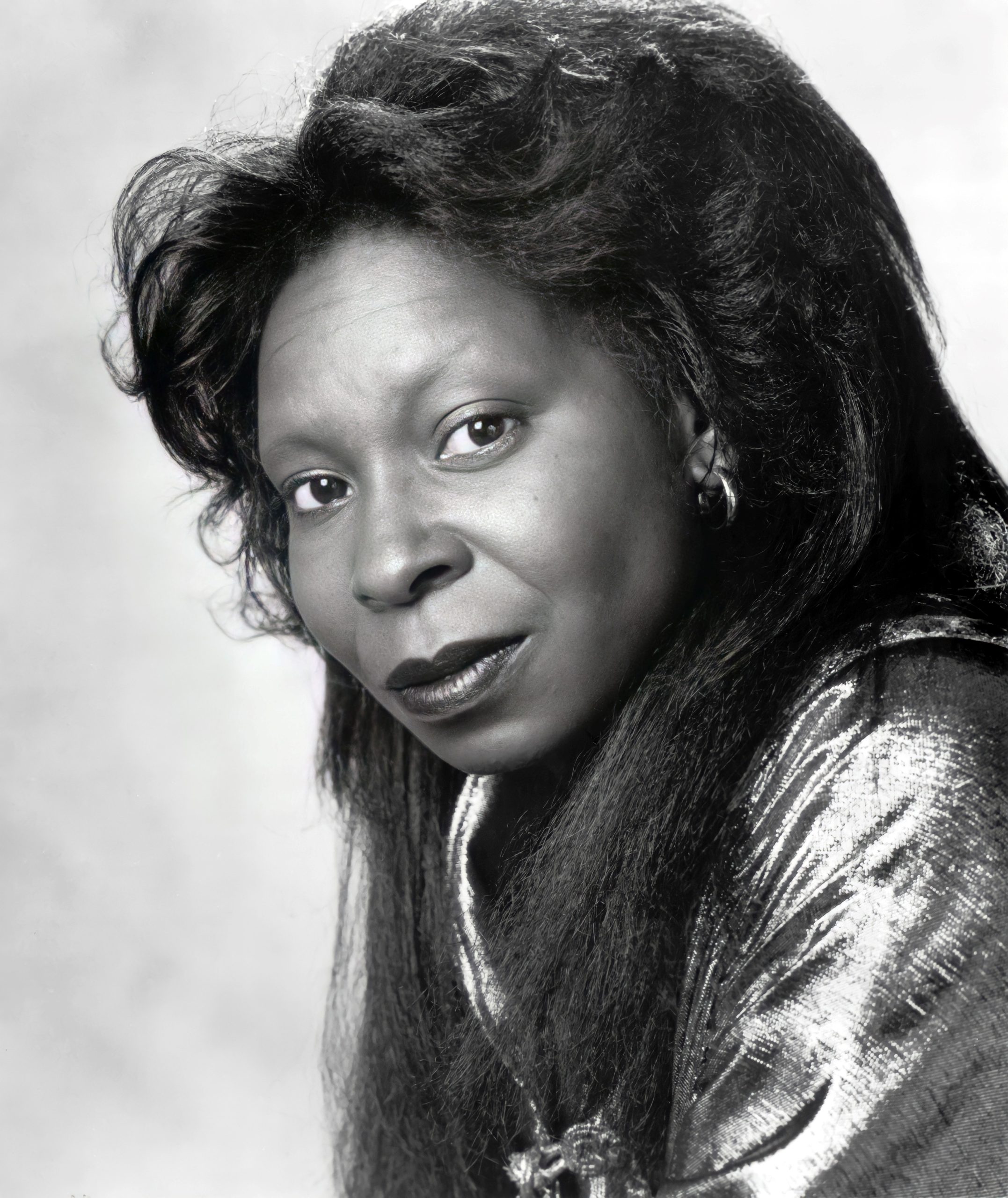
When did you know what you wanted to do?
Whoopi Goldberg: Oh, from birth. I knew as soon as I hit that light. I was waving! It’s always been. It’s as much a part of my whole being as breathing. I always knew this was it. I didn’t know it was going to be like this, you know. But I always knew that I wanted to act.
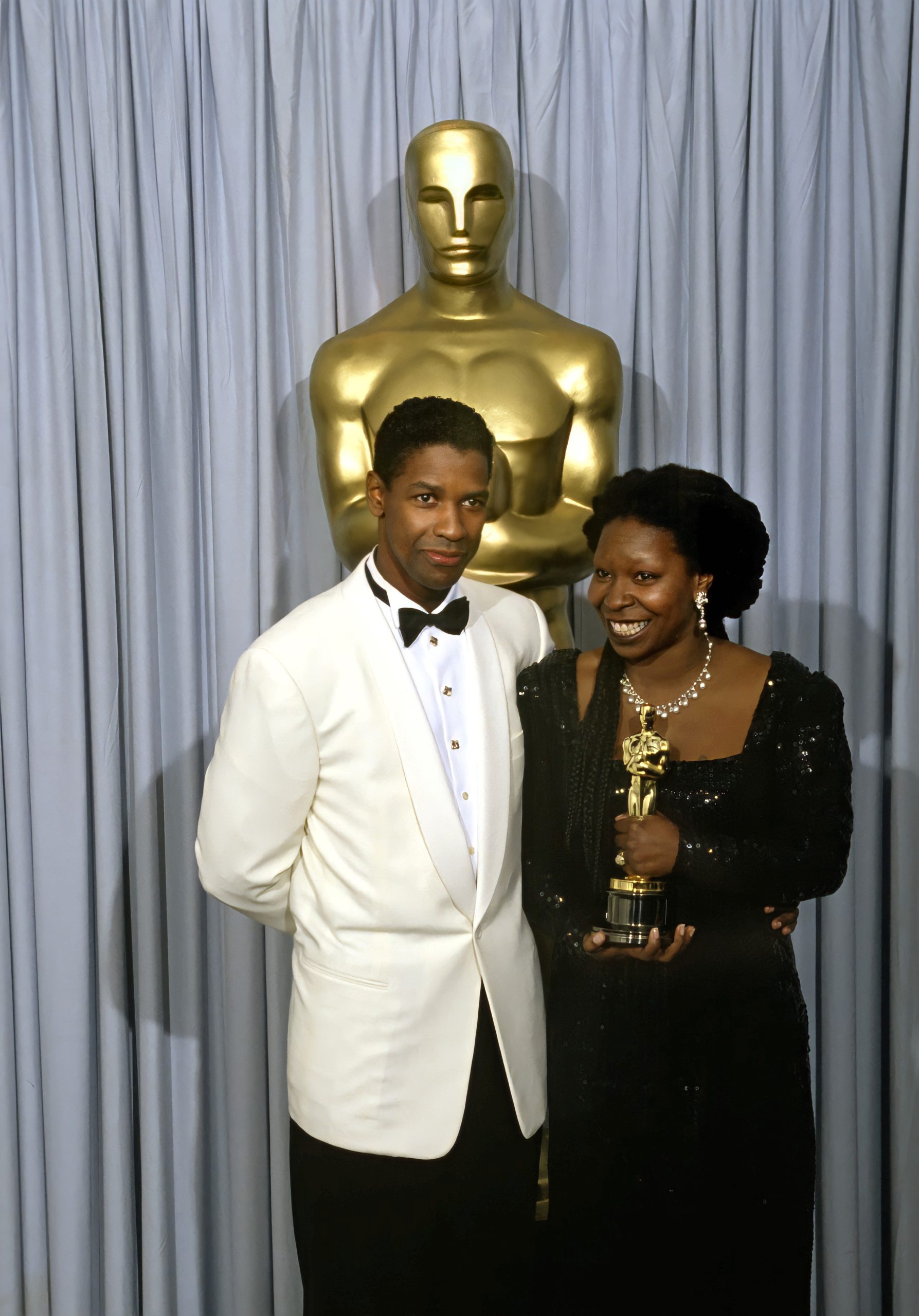
Did you have support at home?
Whoopi Goldberg: I grew up in a time when it would never have occurred to anyone to tell me there was anything I couldn’t do. You know, I grew up in a time when the country was very pro the people who lived in it. That’s why as many changes were able to happen… the March on Washington came into reality. People really believed that they had a stake in the country. So there were all kinds of invitations to make the country better. So there was never for me, anyone saying, “No, you’re going to fail,” or “No, there’s no place for you.” The only thing my mom every said to me was, “It may be tough, but what isn’t?”
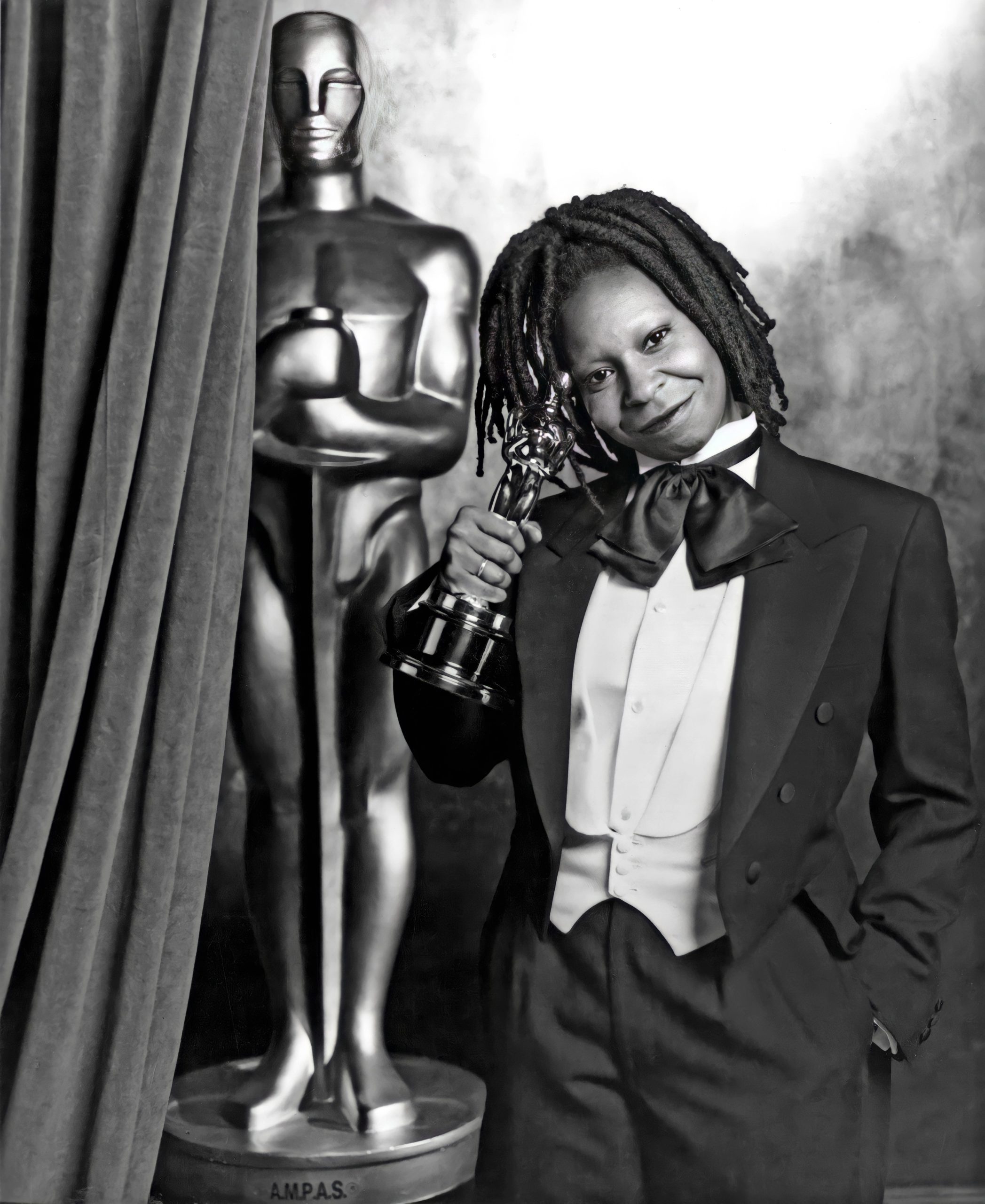
What do you say to kids who want to be actors?
Whoopi Goldberg: Come on! Come on! You know, be an actor because you love to act. Don’t be an actor because you think you’re going to get famous, because that’s luck. But if it’s what you want to do with your whole heart and soul, come on. Go everywhere, learn everything. Learn Shakespeare. Shakespeare is great fun. Don’t be thrown by the words. The words are the same words that we use with a little different implementation. Write things for yourself. Come on, it’s a great way to spend time. It’s a great way to learn history. It’s a great way to learn all kinds of things. But only come if you’re coming to play. If you’re not coming to play, you should get another gig to supplement your acting.
Were there any books that made a particular impression on you?
Whoopi Goldberg: I’m dyslexic, so there weren’t a whole lot of books in my early life. But I did love stories. I love fairy tales and I love spooky stories. Anything with a good 25- to 30-minute brain trip for me to go on. I still like to be read to.
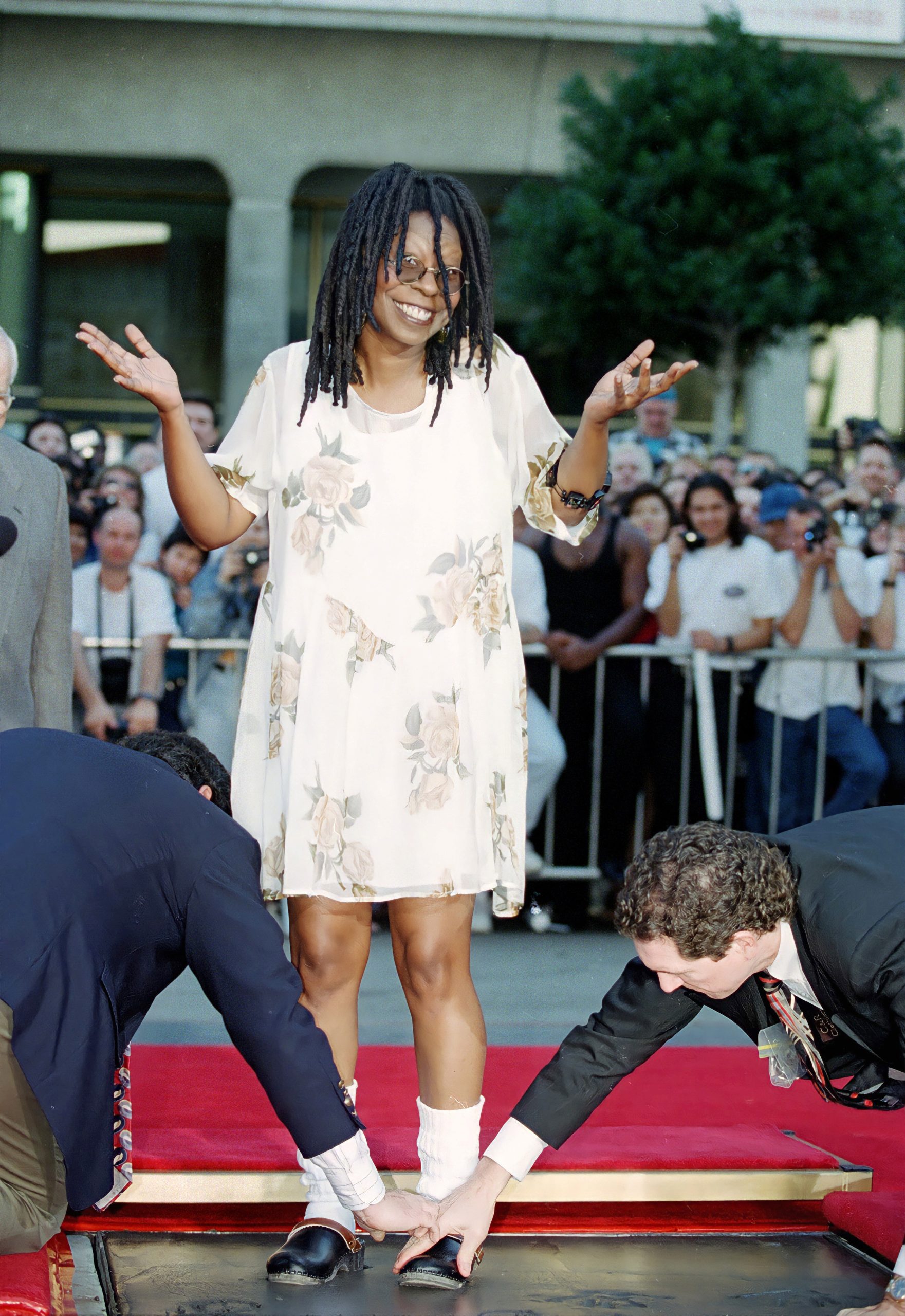
When did you find out you were dyslexic?
Whoopi Goldberg: When I was a grown woman.
When I was a kid they didn’t call it dyslexia. They called it… you know, you were slow, or you were retarded, or whatever. And so, I learned from a guy who was running a program who I met one day and he had written out on a board a sentence. And I said to him, “You know, I can’t read that.” And he said, “Why not”? And I said, “Because it doesn’t make any sense to me.” So he said, “Well, write down what you see under each. Whatever you see, write exactly what you see underneath.” And so, he brought me to letters by coordinating what I saw to something called an A, or a B, or a C, or a D, and that was pretty cool. Once you got into the habit of doing it, it became much easier.
Probably, by the time people see this in 2025, they will have been able to eliminate it. They will be able to eliminate it with just an adjustment, a little implant.
What you can never change is the effect that the words “dumb” and “stupid” have on young people. So we must always be vigilant when those two words get stuck in our throat. “Hey, dummy! God, you’re so stupid.” You know. Just remember that what those leave you with are forever, you know. Be it in 1810, or 4010, you know. The effect that they have is the same.

It doesn’t seem to have stopped you.
Whoopi Goldberg: No. Because I knew I wasn’t stupid, and I knew I wasn’t dumb. My mother told me that. Everybody told me I wasn’t stupid or dumb. If you read to me, I could tell you everything that you read. They didn’t know what it was. They knew I wasn’t lazy, but what was it? It’s like in the early days when little girls complained about having cramps. Their mothers, and their mother’s mothers were just sort of left to deal with it, because it was all in your head.
It took 25 or 30 years for people to understand that menstrual cramps are a real thing, that PMS is a real chemical change in the body. Think of all those little girls whose mother said to them, “Why do you just want attention?” It’s still new information that these things are actual body problems. Postpartum depression is a real, viable thing. Now they can help people.

What was the most exciting moment in your career?
Whoopi Goldberg: Sitting at the table during Color Purple and looking up and suddenly realizing I was acting in front of Steven Spielberg was pretty cool. It was pretty good. Because it was like, suddenly, I got it. I was there. I was in a movie. Not only was I in a movie, but I had a big part in the movie, you know. And I just started laughing and laughing. It took about 25 minutes to compose myself, but it was pretty remarkable. Because, you know, there was an idea whose time had come, for me. And that it was with Steven Spielberg was pretty cool.
What did getting the Academy Award mean to you?
Whoopi Goldberg: It was pretty cool, I have to say. I liked it. I would like to do it again one day. It was very cool. I used to make speeches when I was a kid, you know, thanking all the little people. And suddenly, there I was having to make a real speech! I touch my Oscar every day. I move him from one place to the other and then back.

You also hosted the awards.
Whoopi Goldberg: Oh, yes. I liked it. When else are you going to get to play with several billion people? It’s just one more thing I can write in my diary: Dear Diary, played for two billion today. I have this whole book of things that I’ve gotten to do. I’ve gotten to play at the White House, which is kind of neat. I’ve been all over the world. I’ve met amazing people. Life can be grand. It can be tough, but it can be grand.
What does the American Dream mean to you?
Whoopi Goldberg: I am the American Dream. I am the epitome of what the American Dream basically said. It said you could come from anywhere and be anything you want in this country. That’s exactly what I’ve done. The great divide between my era and the eras that come after me is that you are not getting the encouragement and the “hands-on” from your government. A lot of times your teachers have been left out in the cold. So it’s hard for them to focus the way that teachers were focused when I was a kid. There’s not a lot of work out there as there were when I was a kid. We had programs that were set up by the country. So, the fact that you’re making it now, makes you 5,000 times the person that those who came before you were. Because we had a lot of help, and there’s very little help out there now.
